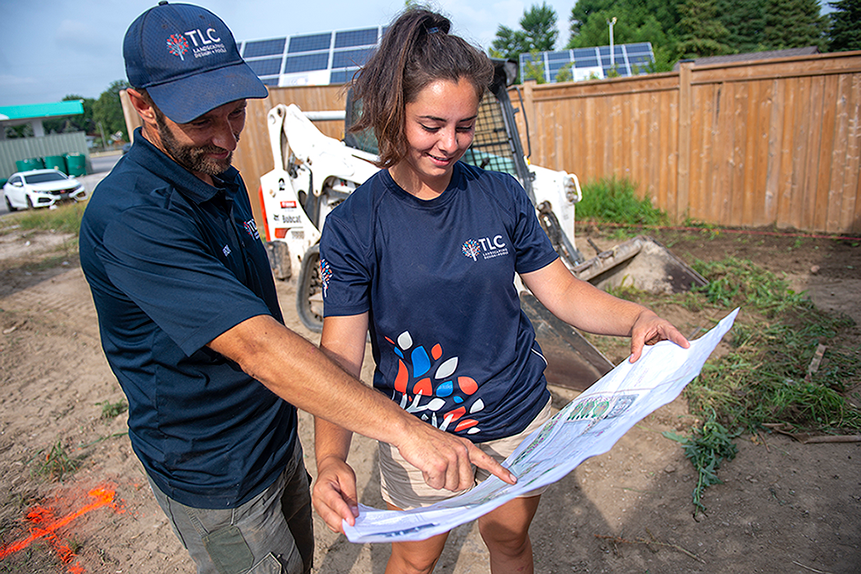
Unlock Fresh Talent and Boost Your Business
Co-op students bring a multitude of benefits to businesses, making them a valuable asset to any organization. Co-op students inject fresh perspectives and innovative ideas into the workplace. Their academic training and exposure to the latest industry trends equip them with up-to-date knowledge and a keen ability to think critically. Co-op students are highly motivated and eager to learn, bringing a contagious energy and enthusiasm to their work. They possess a strong desire to apply their classroom learning to real-world situations, making them quick learners and adaptable team members. By hiring co-op students, businesses not only gain access to emerging talent but also have the opportunity to shape and mentor the next generation of industry leaders.
A Cost-Effective Way to Hire Talent
Hiring co-op students is a cost-effective way to hire talent to your workforce. There are several hiring incentives that businesses can apply for to help offset the cost of hiring a co-op student.
Hiring a co-op student is an effective way to plan for potential long-term recruitment. Hiring a co-op student allows businesses to assess their skills, work ethic and cultural fit before committing long-term. Businesses have the opportunity to hire the student after they graduate from their program. This reduces the cost of training as the student has experience working within the business.
Co-op Programs at Fanshawe
Fanshawe College provides over 70 co-op programs, offering students invaluable real-world experience and a competitive edge in the job market. With a diverse range of fields, including business, sciences, technology, and more, Fanshawe College ensures that students from various disciplines have access to meaningful co-op opportunities aligned with their career goals.
How Does Co-op Work
Work semesters are spaced out through the academic program, and students achieve progressively advanced skill levels as they advance through their studies. Similarly, the work experience opportunities should increase in difficulty and responsibility as the student progresses through the program. Students will work full-time for your business for an entire semester. Normally, work semesters are four months in duration, but in some programs, there are double co-ops of eight months or even longer. The minimum duration is 12 weeks of full-time employment.
The co-op pattern for each program is designed so that students are likely to be available for work during busy periods in companies related to their field of study.
The Hiring Process
Step 1: Start by posting a job online.
Step 2: Eligible students apply for posted positions. You select who you would like to meet with for an interview and who you would like to hire. Our co-op consultants are there to help you every step of the way.
Step 3: Once you have selected the successful candidate for your organization, our co-op consultants will help you register the co-op for the student's records and to ensure this hire is eligible for any applicable funding. All co-ops are registered with Fanshawe College to ensure support for employers and monitoring of student learning. During this phase, you will work closely with a co-op consultant and the students you are hiring.
Step 4: Fanshawe College will monitor the student's performance and progress on the job usually through submitted work semester reports and/or on-site visits by the co-op education consultant. A co-op consultant is only a phone call away if any questions or complications arise.
Step 5: The employer conducts an evaluation of the student's work performance prior to the end of the work semester and after discussing the evaluation with the student, it is submitted to the College.
If you have any questions about the hiring process, fill out the form below to connect with one of our co-op consultants.
Fanshawe Students are Prepared
All co-op students undergo a pre-employment training program that includes information about careers related to their program, business/industry requirements and standards, and workplace adaptation. Only those students who pass all of their college courses are eligible for co-op so you can be sure that your student will have the basic skills required for success in an entry-level position.

Not an Employer or Community Member
- If you are a current Fanshawe student looking for work, please visit our Career Services page.
- If you are a Canadian citizen interested in studying at Fanshawe, please connect with our Student Recruitment team.
- If you are an international student (non-Canadian) interested in studying at Fanshawe, please connect with our International team.
- If you are a non-Canadian looking for work in Canada, please visit this Government of Canada Immigration and Citizenship page.



